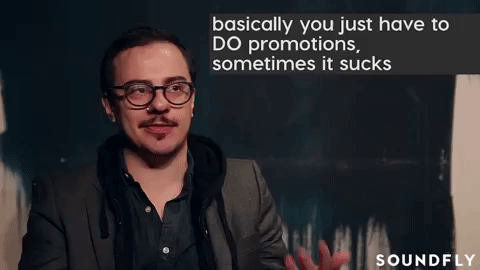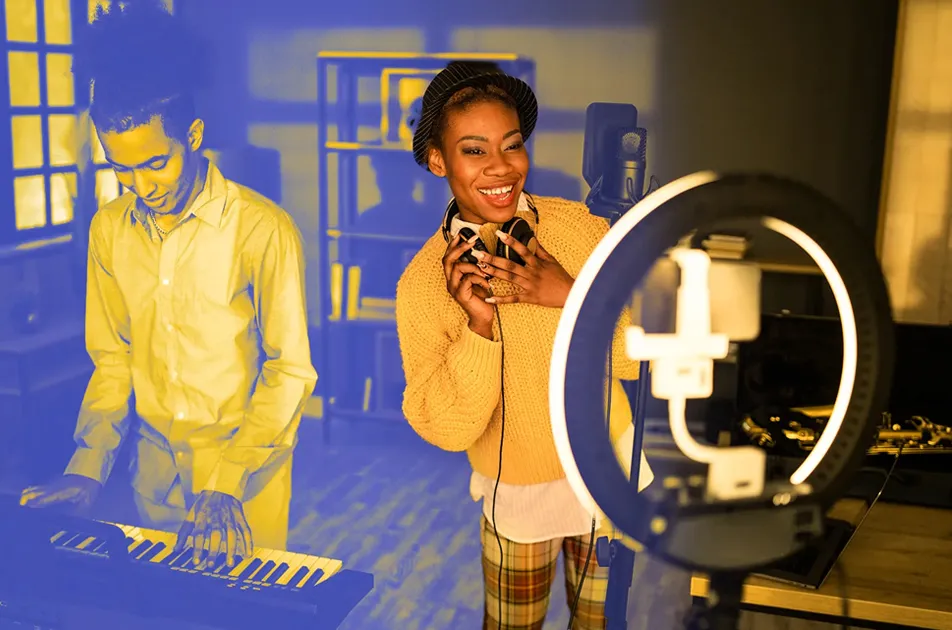
1. Branding and brand consistency matters.
The term brand consistency refers to any attempt to communicate messages in a way that doesn’t detract from your core brand strategy, values, and foundation. In other words, brand consistency is all about being yourself in everything that you do so that consumers know who you are, what you produce, and what your work is all about. Without brand consistency, consumers will lose sight of the message you are trying to convey, which in turn will cause them to lose interest. If they cannot understand what you are trying to do, they will find it hard to trust your future output, thus making it increasingly hard to convert listeners into supporters.Branding doesn’t have to be a bad word for artists. You just need to establish the general contours of your identity as a guide for maintaining it in everything you do. Such efforts should include basic instructions on how to use all your branding tools (name, logo, typeface, photos, color palettes, etc.). Being specific is key. Know exactly how you want to be presented and find clear ways to communicate that to anyone who works with you moving forward. This includes publicists, booking agents, promoters, etc.+ Work with a Soundfly Mentor on your branding in a goal-oriented Headliners Club session this month! Let us know what you’d like to work on here.2. Piracy is still an issue. Address it.
A decade ago, we were all sold the idea that digital streaming could end the destruction to artists’ bottom lines caused by digital piracy by creating new, legal means to access music on demand. While services like Spotify and Apple Music have helped to monetize digital music, they have not helped in reducing piracy. Digital piracy in 2017 was worse than any previous year on record, and by 2020, the rate of theft online is expected to double.With that in mind, artists have tons of tools available to them that allow them to promote without fear of theft. Haulix, for example, provides a secure platform to discreetly share new and unreleased music with industry professionals and influencers. They also offer anti-piracy tools, such as watermarking and two-factor authentication. Get your releases out there, but be safe about it, so you can make sure your royalty dollars are still coming in.3. Relationships are everything. Network. Network. Network.
Networking matters more than you might think. That unknown band who suddenly got a feature in Rolling Stone? That’s networking in action. That local act that just signed with the label of your dreams? Networking made that happen. Is the DIY group all your friends keep talking about now opening tour dates for an international headliner? Networking.Your skill level and/or knowledge as it relates to the music industry won’t mean a thing if you are unable to meet people professionally and make a good impression. Relationships mean more in music than virtually anything else. You’re more likely to be asked who you know and what you’ve done with or for them than where you went to college or what your GPA was. To succeed in this industry, you need strong work relationships, and the only way to develop those is by networking with your peers, and never being shy to meet new people, online and in-person.4. Playlists are the new mixtapes.
Playlists are maybe the most significant music discovery tool that exists today. People of all ages use music to express themselves and curate a personal soundtrack that others are encouraged to use. In the age of Spotify and Apple Music, the same goes for brands. There are hundreds of brands curating playlists crafted to represent a particular mood or aesthetic, and there are millions of people engaging with those selections every week.




